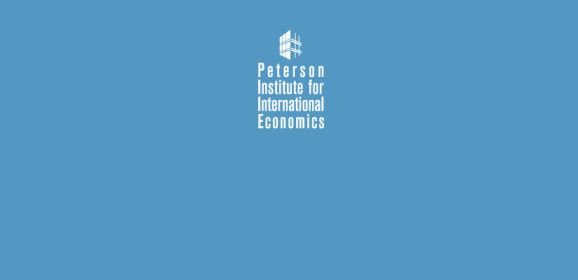Section: Peterson Institute for International Economics (USA)
Ukraine’s wartime economy and financial resilience
In addition to the humanitarian crisis and human tragedy caused by Russia’s invasion, Ukraine is facing economic and financial distress. Valeria Gontareva, who was Governor of the National Bank of Ukraine in the years immediately following the country’s 2014 revolution, joins to discuss the… …read more Source:: Peterson...
Putin’s Russia may echo the Soviet bloc, but it is far smaller
It has become commonplace to analyze Russia’s invasion of Ukraine, and the international response to it, through the prism of the Cold War. This framing makes sense, but it is also important to keep in mind that today’s Russia, even together with its allies such as Belarus, is much smaller than the… …read more Source::...
Russia’s war is Europe’s moment to defend democracy and world stability
The European Union has acted with remarkable unity and speed to oppose and punish Russia over its invasion of Ukraine. Its response puts to rest the complaints over its aspiration to be a geopolitical player while not being able to agree on a joint strategy vis-à-vis the main global players. But… …read more Source:: Peterson Institute...
Russia’s war on Ukraine: A sanctions timeline
Russia’s military assault on Ukraine has prompted other countries to impose an extraordinary set of coordinated economic sanctions against Russia. The measures aim to limit customary trade and financial relations with Russia, penalize Russian oligarchs for supporting President Vladimir Putin and… …read more Source:: Peterson...
Sanctions: Tightening the noose on Russia
The words of Bruno Le Maire, the French finance minister, were as provocative as accurate—it is indeed a “total economic and financial war” that has been launched against Russia. What is at stake goes beyond Ukraine, since it is about finding out whether economic retaliations can make an aggressor… …read more Source::...
How Russia’s war in Ukraine affects the financial sector
Following Russia’s invasion of Ukraine, the country’s financial system has been crippled by financial sanctions from a broad range of reserve-currency-issuing jurisdictions. This discussion will focus on the latest financial sector developments inside Russia and the broader consequences in Europe… …read more Source::...
The Rise of Economic Nationalism Threatens Global Cooperation
The coordinated policy response of major economic powers to the global financial crisis of 2008 prevented an even bigger catastrophe. Now with the risk of another downturn, caused in part by the US-China trade war, what are the prospects for worldwide policy coordination to avert a disaster? Not… …read more Source:: Peterson Institute...
Back to the Center: Italy’s New Governing Coalition Faces Tough Choices
Italy’s new governing coalition, combining the populist Five Star Movement and the center-left Democratic Party, has done more than sideline the right-wing forces of League Party leader Matteo Salvini. The new more centrist alliance is certain to calm nervous financial markets and reassure the… …read more Source:: Peterson...
Elizabeth Warren’s Approach to Trade Is Inclusive, Green, and Ineffective
If Senator Elizabeth Warren’s policies on trade have a familiar ring, it may be because they echo the unlikely alliance of economic nationalist, labor, and environmental interests championed by previous presidential candidates Patrick Buchanan, Ross Perot, and Ralph Nader, vintage 1993, in… …read more Source:: Peterson Institute...
The Amazon Is Burning. Bolsonaro Fanned the Flames.
Global warming is widely and correctly blamed for the fires raging in the Amazon rainforest and elsewhere around the world. But the tragedy in Brazil represents a public policy failure of a more manageable and unforgiveable sort. It is not just the Brazilian inability to fight the fires. The… …read more Source:: Peterson Institute for...



